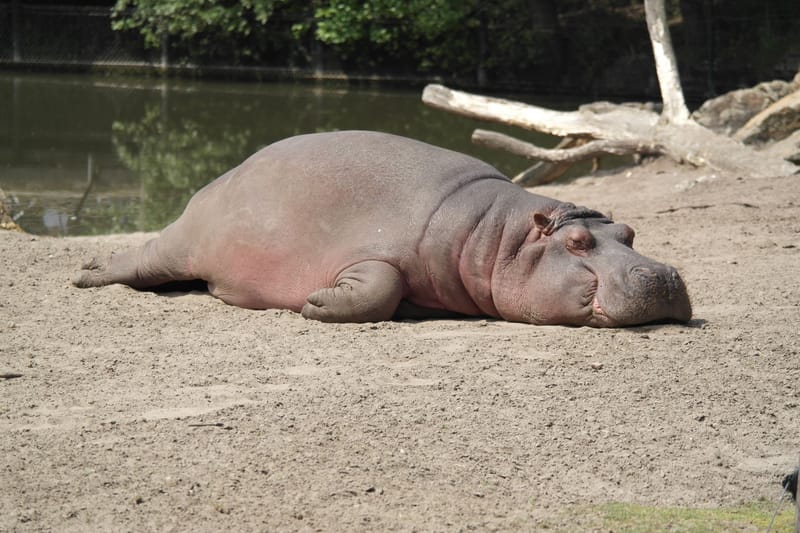We get tired sometimes

Humans get tired for a variety of reasons, both physical and psychological. The most common physical cause of fatigue is lack of sleep or poor-quality sleep. During sleep, the body goes through several stages, including deep sleep and rapid eye movement (REM) sleep, during which the brain and body rest and rejuvenate. If you don't get enough sleep, or if the quality of your sleep is poor, your body doesn't have a chance to fully rest and recover.
Other physical causes of fatigue include:
Dehydration: The body needs an adequate amount of water to function properly, and dehydration can lead to fatigue.
Nutritional deficiencies: Lack of certain vitamins and minerals, such as iron, can cause fatigue.
Medical conditions: Chronic conditions such as anaemia, thyroid disorders, and diabetes can cause fatigue.
Medications: Some medications can cause drowsiness or fatigue as a side effect.
Psychological causes of fatigue include:
Stress: Chronic stress can lead to fatigue and make it difficult to sleep.
Depression: People who are depressed often feel tired and have a lack of energy.
Anxiety: Anxiety can cause physical symptoms such as muscle tension, which can lead to fatigue.
Lack of motivation: When we don't find meaning in what we do, it can make us feel tired, and make it hard to find the energy to do it.
The body has a complex mechanism to control the level of energy and alertness, it's regulated by a combination of hormones and neurotransmitters such as melatonin, cortisol, adrenaline, and dopamine. These chemicals interact with the brain's sleep-wake cycle centres to regulate the drive for sleep and wakefulness. The exact mechanism of how these hormones and neurotransmitters interact with one another and the brain is still being studied, but it's known that disruptions in this balance, caused by external or internal factors, can result in fatigue.
It's important to note that fatigue can be a symptom of a more serious condition, so if you're experiencing chronic fatigue, it's important to see a healthcare professional to rule out any underlying medical issues.
A good night sleep is just what we need but it's when and how we get up that sets our sleep cycle.
The optimal morning routine - YouTube Link - After Skool - Prof Andrew Huberman
Here's a simple morning routine to help you start your day feeling refreshed and energized:
- Wake up at a consistent time.
- Hydrate with a glass of water.
- Stretch or do light exercises.
- Take a shower.
- Eat a healthy breakfast.
- Plan your day and set goals.
- Meditate or practice mindfulness.
- Get dressed and ready for the day.
This routine can be adjusted to fit your personal preferences and schedule. The important thing is to establish a routine that works for you and helps you feel prepared for the day ahead.
Anyway, you can't really hurry relaxation so don't bother trying. Not trying, in this case, results in relaxation and eventually sleep.
When I achieve a balance I can relax. I relax when I stop spiking my neurochemistry by means of repeating certain thoughts. When the energy of my curiosity drive ( and all other drives) drops below the energy level of the coordinated energy required for consciousness I fall asleep.
When I allow myself to relax I go to sleep.
I make myself as comfortable as possible and allow my thoughts to become like dreams.
I think of nothing very interesting, I get bored, I go to sleep.
I allow thoughts to flow in a comfortably smooth and effortless way. I just let things go and ride the wonderfully comfortable wave of relaxation to sleep.
Here are some of the major human drives and their energy characteristics:
Hunger drive: This drive is associated with the need for food and nourishment, and is characterized by a slow and steady energy increase.
Thirst drive: This drive is associated with the need for fluid and hydration, and is characterized by a slow and steady energy decrease.
Sleep drive: This drive is associated with the need for rest and recovery, and is characterized by a gradual and persistent decrease in energy.
Sexual drive: This drive is associated with the need for intimacy and physical pleasure, and is characterized by sudden and intense energy spikes.
Aesthetic drive: This drive is associated with the need for beauty and sensory experience, and is characterized by sudden and fluctuating energy spikes.
Curiosity drive: This drive is associated with the need for exploration and discovery, and is characterized by a slow and steady energy increase.
Power drive: This drive is associated with the need for control and dominance, and is characterized by sudden and intense energy spikes.
Achievement drive: This drive is associated with the need to accomplish goals and attain success, and is characterized by a slow and steady energy increase.
Social drive: This drive is associated with the need for connection and social interaction, and is characterized by sudden and fluctuating energy spikes.
Self-actualization drive: This drive is associated with the need for personal growth and fulfilment, and is characterized by a slow and steady energy increase.
Play drive: This drive is associated with the need for leisure and recreation, and is characterized by sudden and fluctuating energy spikes.
Safety drive: This drive is associated with the need for security and protection, and is characterized by a slow and steady energy decrease.
Altruism drive: This drive is associated with the need to help others and make a positive impact, and is characterized by a slow and steady energy increase.
Spirituality drive: This drive is associated with the need for meaning and transcendence, and is characterized by a slow and steady energy increase.
Note: These are generalizations and individual experiences may vary. Additionally, different drives may overlap or interact in complex ways.
